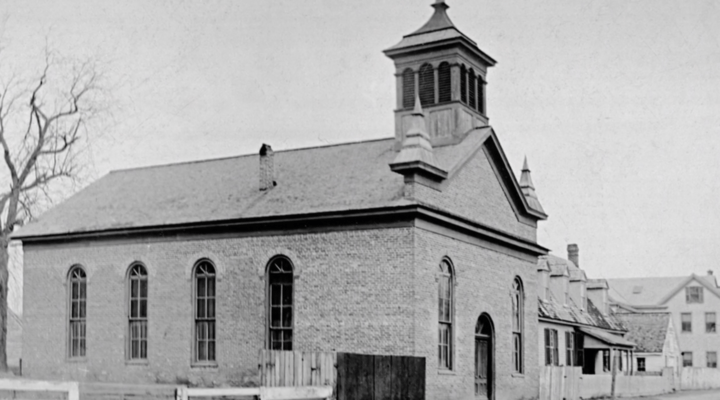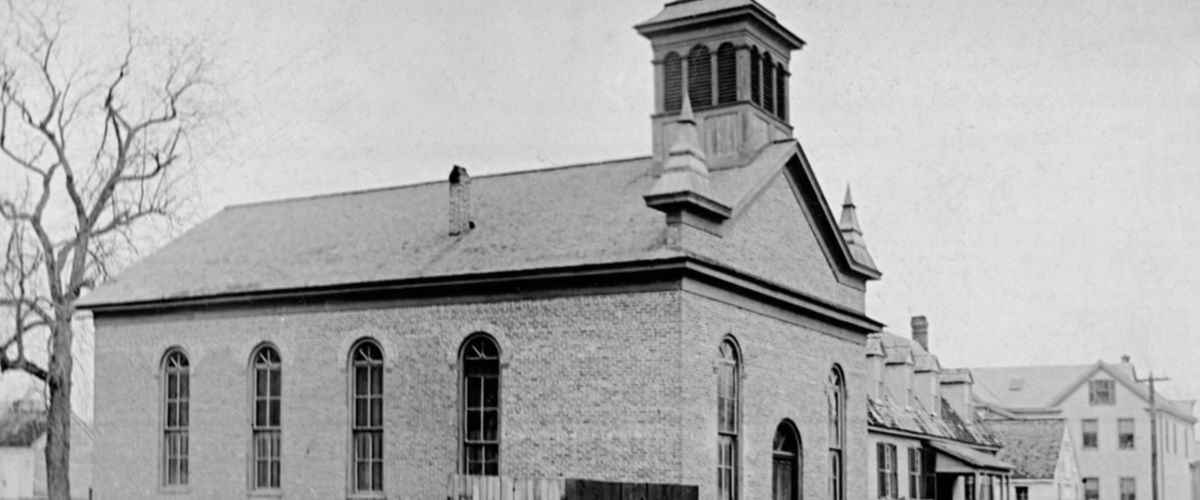Americans have a long way to go to fully embrace freedom of religion and expression given the challenges of recent years, decades and even centuries, according to a panel discussion hosted online this month by Colonial Williamsburg in Virginia.
“A society is judged on how it treats its minorities. Based on the waves of anti-Catholic hostility, anti-Semitism, anti-Muslim sentiment and more that have plagued our past and even today, we have a lot of work to do,” panelist Razi Hashmi said during the livestreamed presentation of “US: Past, Present, Future,” a series of conversations scheduled to continue monthly through December 2021.
Future topics include “A Woman’s Place,” “Juneteenth,” “Business and Politics” and “American Indian Heritage.” The inaugural session, titled “Religious Freedom,” was held Jan. 16 and is available for viewing online.
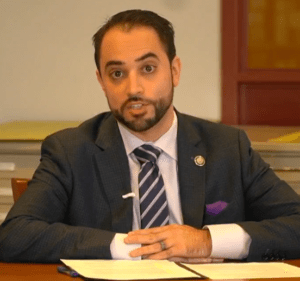
Razi Hashmi
“The challenge lies in whether we respect, honor, cherish and promote that diversity or if we instead denigrate, divide and discriminate ourselves,” said Hashmi, a foreign affairs officer in the U.S. State Department’s Office of International Religious Freedom.
Often missing is a basic understanding and respect for religious differences that has resulted in violence, said panelist Connie Matthews Harshaw, a member of Historic First Baptist Church of Williamsburg and president of its Let Freedom Ring Foundation dedicated to preserving artifacts from the congregation established in 1776.
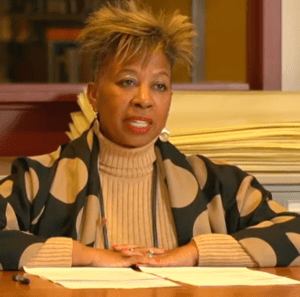
Connie Matthews Harshaw
“I don’t understand how, in this country, we have places of worship — places of faith — where people are actually putting bombs,” Harshaw pondered. “You think about the Civil Rights era: How do you bomb a church when you believe in a God that loves everybody? How do you take down a sign off a church? To me that is a sacred space. How do you say grace over your meal and pray at night, and then go and destroy a church? Any church?”
Historic First Baptist Church is the focus of an ongoing archaeology project with collaboration between Colonial Williamsburg, the nation’s largest outdoor museum, and First Baptist, which was founded secretly by free and enslaved Blacks.
The dig “has unearthed the foundations of the church’s original structure. These initial efforts and future work will help expand programming and tell a more complete and inclusive story about our nation’s founding and life in 18th-century America,” according to the museum.
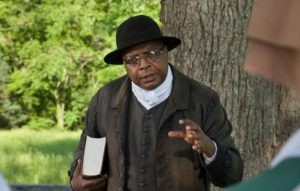
James Ingram portraying Gowan Pamphlet at Colonial Williamsburg
That story also reflects the contribution the church and other African-American Christians, often as slaves, made to the cause of religious freedom in the U.S., said panelist James Ingram, associate minister at First Baptist and a Colonial Williamsburg actor who has portrayed Gowan Pamphlet, a preacher ordained as a slave and the eventual founder of the church.
There was little religious freedom for anyone in the colonies before the Revolutionary War. “You would have the choice to worship in only one denomination in at least 10 of the 13 colonies, and that would be the Church of England,” Ingram said. Pennsylvania and Rhode Island were the exceptions.
Slaves, meanwhile, usually were required to worship with their masters. When African Americans established their own congregations, they did so at their own peril, he said. “The mere fact that the Baptist church was established (in Williamsburg) meant that somebody, some African American, free or enslaved, understood what freedom of religion meant.”
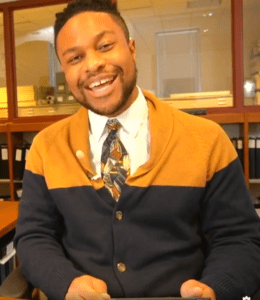
Jamar Jones
A viewer question read by moderator Jamar Jones, a member of the museum’s actor interpreter department, prompted a discussion of how early Black Christians interpreted Scripture, most notably the Ephesians passage urging slaves to obey their masters.
Ingram said that verse was one of the ways slave owners and the Church of England sought to indoctrinate slaves. To do that, Scripture was taken out of context “to make you believe that you had to do certain things to be a good Christian slave.”
But Pamphlet and other Black preachers countered with a holistic approach to Bible study and promoted the idea that Blacks were as much a part of the kingdom of God as anyone else, Ingram said.
Taking biblical passages out of context fuels much of the religious hypocrisy that exists today, Harshaw added. “What we struggle with is not understanding the full text of the Bible.”
Understanding about religious freedom also is needed, the three panelists said.
In the U.S., that requires remembering that the Constitution protects all faiths, Ingram said. “We have gotten somewhere off the mark believing that the freedom of religion is only for our own religious group …. We want to believe our own religion is the only one deserving of religious freedom.”
Harshaw said it will take work to get where America needs to be. “You have to really understand, honor and respect the freedom of choice in religion. If we are going to realize freedom of religion in a country that is so diverse, we have got to understand all the different religions.”
Motivation will be the key to achieving harmony in a multi-faith environment, Hashmi said. The goal is to “encourage people to really focus out of love for one another — that you wouldn’t offend one another based on your love for others.”

